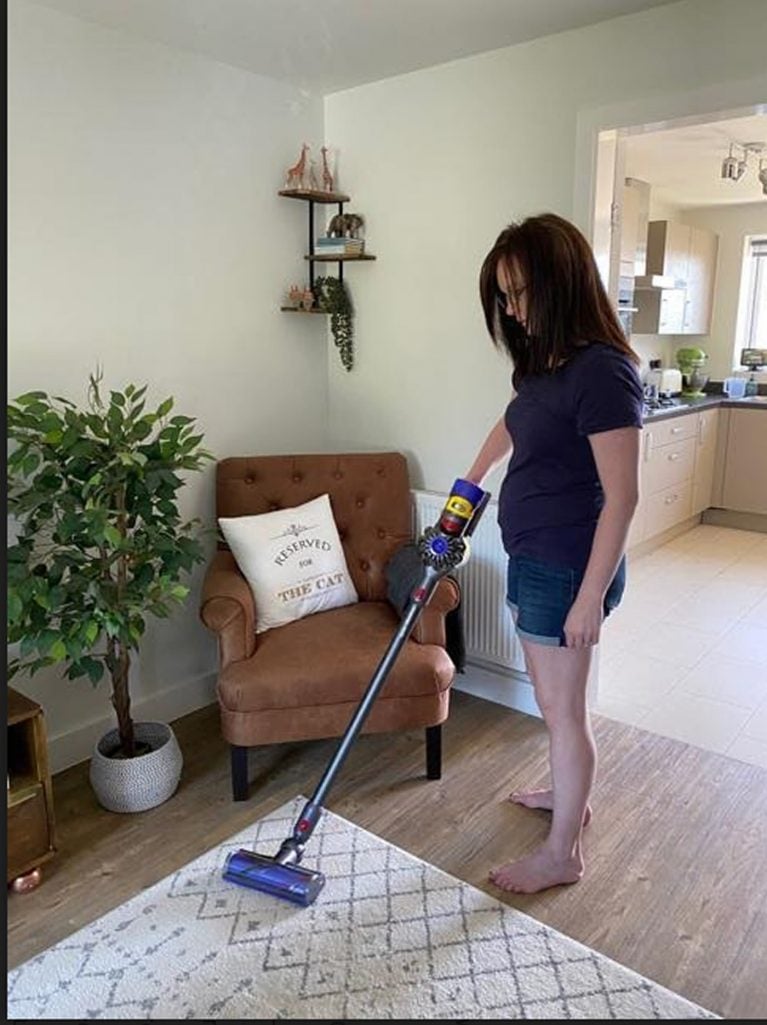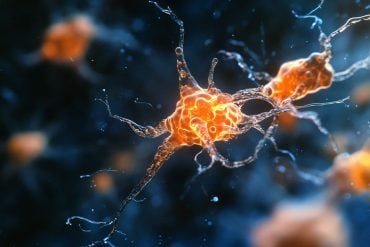Summary: Cleaning and organizing can have a positive effect on our psychological wellbeing. Dr. Stacey Bedwell explores how cleaning and organizational projects around the home can help boost satisfaction, pleasure, and feelings of personal control.
Source: Dr. Stacey Bedwell
The British are a nation known for keeping calm and carrying on. For many of us over the past few weeks, that has been exactly our attitude, perhaps with an added twist – keep clean and organised and carry on.
Just about everyone I know has carried out some kind of home organisation, de-clutter, spring clean, or DIY project to keep themselves occupied during the COVID-19 lockdown. Seeing this going on got me thinking. Is there more to it than simply occupying ourselves? Surely if that were the case, it would be much easier to pick up a book to read or watch a film.
If I look at my own activity since March as an example, I’ve done more DIY in the space of two months than I have since we moved in to our house, and my floors have never been so clean. I’ve also decided I needed things like a new vacuum, a better mop, and storage solutions I’ve never thought about before. I have a full-time job, a bookcase full of books to read, several TV subscription services and I’m lucky enough to live on the edge of the National Forest. So, I’m fairly sure it’s not all out of boredom. I also know I’m not alone in my newly organised and sparkly clean home.
It is no surprise that in stressful lockdown times so many of us turn to cleaning up and organising our home environments. There is not much else to do. However, it may not be simple boredom. Recent research has revealed a positive psychological benefit to the physical act of cleaning itself; not only due to the effect of our immediate environment but also the mindfulness effects of the process (Hanley et al., 2015). The popular idea from Japanese decluttering expert Marie Kondo tells us if things don’t spark joy, they have no place in our homes. When we do this, it seems we are not simply jumping on the bandwagon. There are clear psychological benefits to keeping a clean and tidy home.
Consider the major cleaning related changes I have made during lockdown. The start of lockdown saw the end of my cleaner visiting for the foreseeable, so I had to take on a chore I hated. I love using my new Dyson cordless vacuum. I will admit I feel strangely satisfied seeing it fill up with far more dust than I ever knew was in my carpets. I think the strange joy such a trivial thing brings is down to having a sense of personal control over the situation. In a time when we have little control over such large areas of our lives, it is comforting to have control over the environment we are now spending most of our time in.

The psychological benefits of clean and tidy environments may seem clear, and I have certainly felt the benefits of doing it for myself. However, there is a large body of research to suggest it is not as simple as this. Research shows that especially in the workplace, both tidy and messy desk spaces have psychological benefits. The latter perhaps leading to more creativity and stimulating new ideas (Vohs et al., 2013). This knowledge makes me feel better about the state of my desk (both home office and work), which seems to have bypassed any tidying or decluttering efforts.
Having control, or even perceived control over a situation is known to alleviate anxiety (Clark and Sternfeld, 2018). When we are placed in circumstances beyond our control, especially with a great deal of uncertainty, such as the current situation surrounding Covid-19, lockdown and social distancing, having another element of our lives we feel in control of can help us to feel more at ease, especially if this follows some kind of ritualised or repetitive pattern (Langen et al., 2011). Similar effects can also be seen in the animal world (Mason et al., 2007). Having a sense of control is thought to be a biological imperative for survival (Leotti et al., 2010). We exercise this need for control through making choices (Leotti et al., 2010). In the current climate, many daily choices are beyond our control, such as where we visit and who we spend time with. In response, many of us have shifted towards making choices we do have more personal control over right now. Given the fact that over the past few weeks most of the population has been confined to their homes for the majority of the time, it is perhaps no surprise that the element of our lives so many have taken control of is our immediate surroundings.

In addition to control, taking charge of one’s home environment and tackling a project such as a spring clean or a DIY project can bring with it a sense of satisfaction and pleasure, involving neurotransmitters including dopamine and serotonin – the ‘happy hormone’ (Dfarhud et al., 2014). So inevitably, the more we partake in these activities, the more pleasure we feel from them. In a time where recreation and social activities, that we may usually pursue to achieve these feelings of pleasure, have been restricted, creating new ways to achieve the same neurophysiological response may have enabled many of us to get through the lockdown period without overwhelming feelings of frustration and depression that social isolation could bring.
As we see the lockdown measures being eased, we can also begin to see anxieties shifting and changing. As we begin to gain more control over where we go, who we see, having more access to the world beyond our homes, we can see the demand for DIY supplies dropping and conversations about home cleanliness and organisation being replaced with conversations about planning for future holidays and events.
Note: The author received the vacuum cleaner from Dyson in exchange for crediting them in the article. No funding was received.
About the Author: Dr. Stacey Bedwell is a lecturer in psychology at Birmingham City University. Her research interests are in the prefrontal cortex and associated complex functions, she is specifically interested in how complex high order functions develop and how their development is influenced by childhood experiences. Stacey is an advocate for increasing representation of girls and women in science and is actively involved in scientific outreach with children.
You can follow Dr. Stacey Bedwell via Twitter @DrStaceyBedwell.
About this psychology research article
Source:
Dr. Stacey Bedwell
Media Contacts:
Dr. Stacey Bedwell – Birmingham City University
Image Source:
The images are credited to Dr. Stacey Bedwell.
References
Clark, A. & Sternfeld J. (2018). Hack your anxiety: How to make anxiety work for you in life, love and all that you do. Sourcebooks.
Dfarhud, D., Malmir, M., & Khanahmadi, M. (2014). Happiness & Health: The Biological Factors- Systematic Review Article. Iranian journal of public health, 43(11), 1468–1477.
Hanley, A.W., Warner, A.R. & Dehili, V.M. (2015). Washing Dishes to Wash the Dishes: Brief Instruction in an Informal Mindfulness Practice. Mindfulness, 6, 1095–1103.
Langen, M., Durston, S., Kas, M.J.H., Van Engeland, H. & Staal, W.G. (2011). The Neurobiology of repetitive behaviour:…and men. Neurosci. BioBehav. Rev, 35, 356-365.
Leotti, L. A., Iyengar, S. S., & Ochsner, K. N. (2010). Born to choose: the origins and value of the need for control. Trends in cognitive sciences, 14(10), 457–463.
Mason, G., Clubb, R., Latham, N. & Vickery, S. (2007). Why and how should we use environmental enrichment to tackle stereotypic behaviour? Appl. Anim. Behav. Sci, 102, 163-188.
Vohs, K.D., Redden, J.P. & Rahinel, R. (2013). Physical order produces healthy choices, generosity, and conventionality, whereas disorder produces creativity. Psychological Science, 24, 1860-1867.






